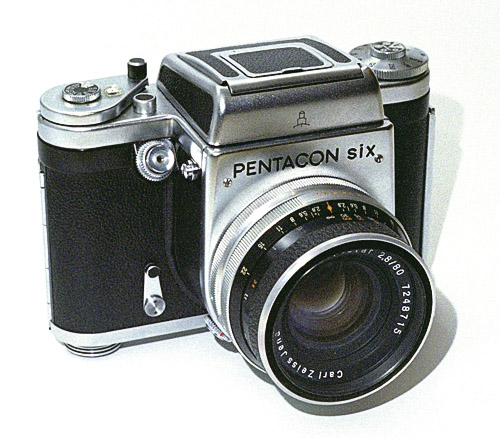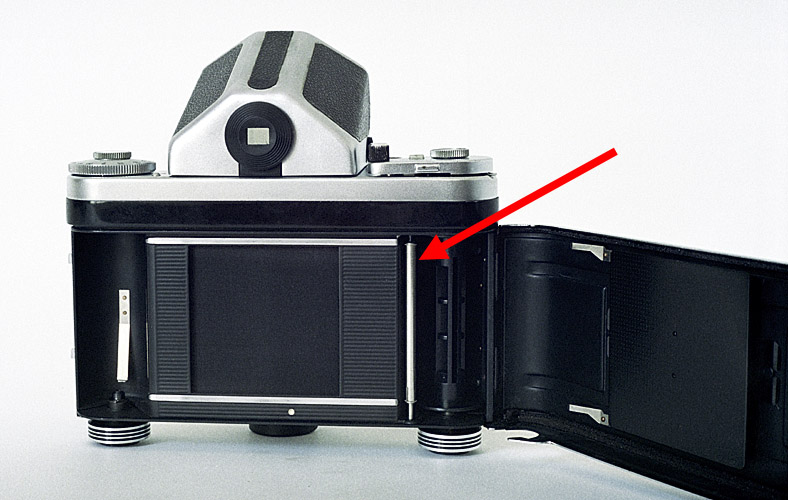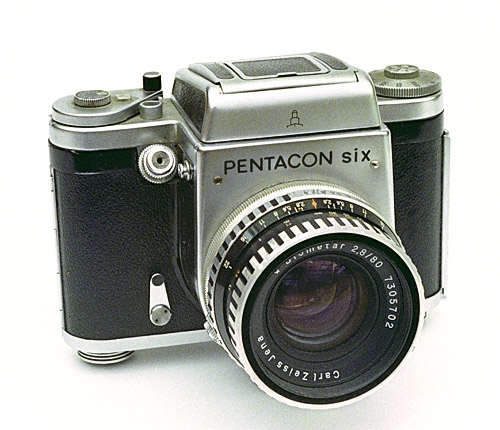by TRA
The History of the Pentacon Six
The Pentacon Six
Dates: 1966 or 1967-1969 – CB

A Pentacon Six with a Biometar lens from November 1965 that was probably
made before the camera, but may have been sold with it.
In this picture one can see the film type and speed reminder dials
on the shutter speed dial and the frame advance lever, respectively.
It is also possible to see the perspex cover on the frame counter,
and the flash synch cable locking nut (just under the lens, at “7.00 o’clock”).
[C396_12.jpg]
Features
This camera incorporated a number of significant changes:
|

Inside the Pentacon Six The spindle that controls film spacing is arrowed. Two non-blackened springs on the door help to press the film against the spindle. Another spring in the film feed chamber on the left also helps to hold the film tight, to ensure both accurate spacing and good film flatness. [C447_34AP6.jpg] |
Accessories and lenses

This Pentacon Six is fitted with the standard 80mm Biometar lens in the so-called “zebra” style. The lens in this picture was completed on 29th March 1968 and was probably sold with this camera. [C151_4.jpg] |
A fresnel viewfinder lens became available as an option.
This increased viewfinder brightness fourfold (equivalent to two extra
stops on the objective lens).
There were now automatic aperture lenses up to 300mm (with
the introduction of the 300mm Zeiss Sonnar in 1966).
|
To go to the Bibliography, click here.
To go on to the next section, click below.
20 The Pentacon Six TL
To go to the beginning of the history section, click here.
To go to introduction to the cameras, click here.
To choose other options, click below.
Home
© TRA August 2010